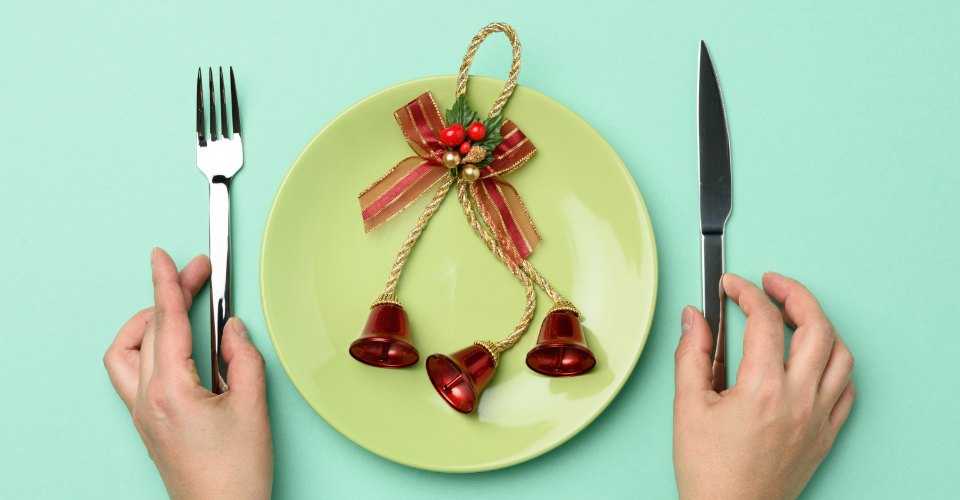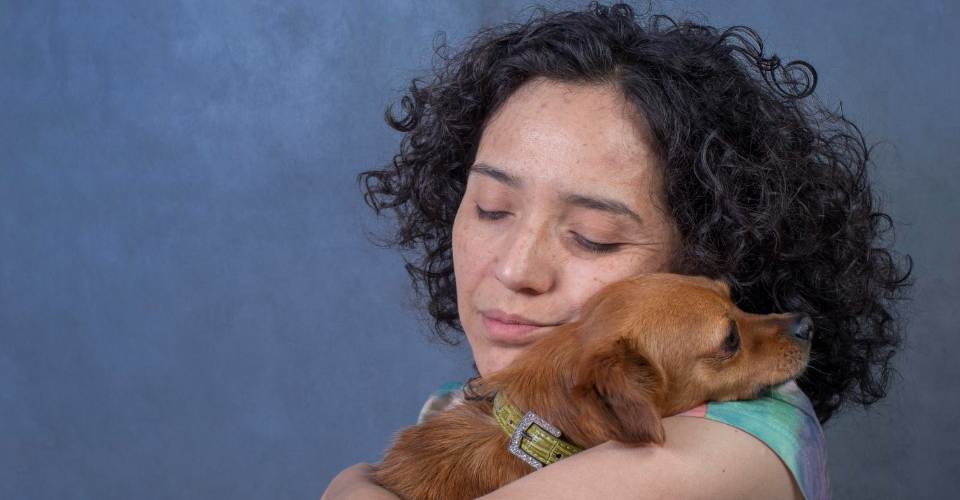Finding Balance Amid Holiday Feasts
The holiday season is a time for joy, laughter, and delicious food. But for many of us, the abundance of treats can lead to moments of overindulgence that leave us feeling guilty and overwhelmed. I remember one holiday when a table full of desserts was impossible to resist, and the aftermath wasn’t just physical—it was emotional too. For those managing a food addiction, the holidays bring unique challenges, but with mindful strategies, we can overcome them.
Food Addiction
Food addiction is a behavioral condition characterized by an unhealthy relationship with specific foods, particularly those high in sugar, fat, or salt. Just as with substances like alcohol, these foods can trigger the brain’s reward system, creating cycles of craving and overconsumption.
Signs of Food Addiction:
- Eating more than planned, especially high-calorie foods.
- Hiding or feeling ashamed of eating habits.
- Using food to cope with stress or sadness.
- Experiencing guilt, irritability, or withdrawal symptoms when avoiding certain foods.
How the Holidays Challenge Us
The festive season amplifies food addiction triggers:
- Social Events: Buffets and endless options encourage overeating.
- Emotional Stress: Family tensions or work deadlines often lead to stress eating.
- Traditions: Seasonal treats like holiday cookies and indulgent meals make it harder to maintain control.
10 Proven Tips for Mindful Eating During Holidays
1. Identify Your Triggers
The holiday season is filled with joyous celebrations, but it can also amplify stressors that lead to overeating. Stress, boredom, social pressures, and even nostalgia can prompt cravings that may feel uncontrollable. Mindful eating begins with understanding these triggers and the emotions behind them.
Common Triggers to Watch Out For:
- Stress: Deadlines, shopping, or family gatherings can lead to emotional eating.
- Boredom: Idle time during holidays can make you snack mindlessly.
- Social Pressure: Friends and family might encourage overindulgence as part of the celebration.
- Tradition: Holiday dishes like sweets or rich foods might evoke comfort or sentimentality.
Why Identifying Triggers Is Crucial:
Studies show that 75% of overeating is emotionally driven rather than due to physical hunger. By identifying what drives your cravings, you can prevent automatic behaviors and make conscious choices.
Steps to Manage Triggers:
- Self-Awareness: Maintain a food diary to note what you eat, when, and how you feel before and after. This helps pinpoint patterns.
- Pause Before Eating: When a craving strikes, pause for a moment to evaluate whether it stems from hunger or emotion.
- Alternative Coping Mechanisms: Instead of eating, try journaling, deep breathing, or talking to a friend to address underlying emotions.
Did You Know?
- Research from the CDC indicates that individuals who engage in intuitive eating—listening to the body’s hunger and fullness cues—reduce emotional eating by 60%.
- Identifying and managing overeating triggers early can prevent potential relapse during holiday indulgences.
Understanding your triggers equips you with the tools to make informed, healthier choices while still enjoying the holiday season.
2. Practice Portion Control: A Holiday Must-Have
The joy of Christmas often revolves around festive meals brimming with rich dishes and tempting desserts. While indulging is part of the celebration, practicing portion control can help you enjoy your favorite treats without the stress of overdoing it.
Why Portion Control Matters
Studies show that we eat 22% more food during holidays than any other time of the year, according to the Journal of Consumer Research. With larger portions contributing to mindless eating, controlling serving sizes becomes essential for mindful eating and relapse prevention.
How to Master Portion Control
Here are practical tips to help you manage holiday indulgence effectively:
- Use Smaller Plates: A Cornell University study revealed that people eating from smaller plates consumed up to 30% fewer calories while still feeling satisfied. Opt for appetizer-sized dishes to naturally limit portions.
- Pre-Portion Desserts: Instead of indulging directly from the platter, pre-serve treats like Christmas cookies or cakes onto a smaller plate to avoid overeating triggers.
- Balance Your Plate: Fill half your plate with vegetables, one-quarter with lean protein, and the rest with a holiday favorite. This intuitive eating approach ensures you enjoy festive flavors while maintaining balance.
- Pause Between Servings: Give your body time to signal fullness. Studies suggest it takes about 20 minutes for your brain to recognize that you’re satisfied.
A Relatable Tip for Christmas Dinners
Before diving into the turkey or pudding, visualize your ideal portion and stick to it. Celebrate every bite by savoring flavors, textures, and aromas—it’s the perfect way to practice mindful eating while enjoying the holiday spirit.
By focusing on portion control, we can navigate Christmas feasts with joy, confidence, and health.
3. Plan Your Meals: A Christmas Strategy for Mindful Eating
The excitement of Christmas celebrations often comes with endless treats, from sugar cookies to roasted feasts. Without a plan, it’s easy to fall into impulsive eating patterns that lead to overindulgence. By planning your meals ahead, you can enjoy the festivities while staying in control of your food choices.
Why Pre-Planning Helps
- Avoid Overeating Triggers: Knowing what you’ll eat reduces the temptation to binge on holiday indulgences.
- Promote Balance: Incorporating nutrient-dense foods like fiber-rich vegetables and lean proteins keeps you full longer, reducing cravings.
- Prevent Stress: A meal plan ensures you spend less time worrying about your next meal, leaving you more time to celebrate with loved ones.
Practical Meal-Planning Tips for Christmas:
- Set a Balanced Menu: Include a mix of protein (like turkey or beans), healthy fats (nuts or avocado), and complex carbohydrates (sweet potatoes or whole grains).
- Plan for Indulgences: Allow room for a holiday treat to satisfy cravings while staying within limits.
- Prepare Ahead: Cook meals in advance to prevent relying on calorie-dense, ready-to-eat options.
Statistics on the Impact of Meal Planning
According to a 2022 study in the Journal of Nutrition Education and Behavior, individuals who plan their meals are 48% less likely to overeat during festive seasons compared to those who don’t. Additionally, meal planning improves overall food choices, helping prevent holiday weight gain.
This Christmas, let’s approach meals with a sense of joy and mindfulness. By pre-planning, we can celebrate without guilt, embracing intuitive eating that nourishes both body and spirit.
4. Build a Support System to Stay on Track
The holiday season, especially Christmas, often revolves around shared meals and festive treats, making it a challenging time to maintain mindful eating habits. Having a strong support system can significantly improve your ability to navigate these situations without feeling isolated or overwhelmed.
Why Support Matters During Christmas
- Social Influence: Studies show that people are more likely to stick to healthy eating goals when they have supportive companions. According to a study by the Journal of Health Psychology, individuals with accountability partners are 65% more likely to achieve their goals.
- Relapse Prevention: Friends and family can act as a safety net, encouraging intuitive eating practices and discouraging overindulgence.
How to Create Your Holiday Support Network
- Share Your Goals:
- Be open with trusted loved ones about your plan to avoid overeating triggers.
- Explain your focus on balance and how mindful eating helps you.
- Set Boundaries Together:
- Politely decline second servings if you’re full.
- Ask for their understanding in avoiding food-centric activities.
- Buddy Up:
- Partner with someone who shares your goals to make holiday indulgence more manageable.
- For example, agree to split a dessert or share plates at Christmas dinners.
- Leverage Virtual Communities:
- Join online forums or groups focused on holiday wellness to stay motivated.
- Apps like MyFitnessPal can track progress and provide virtual accountability.
By fostering a support system, we can enjoy Christmas celebrations without compromising our health goals. Together, we can prioritize mindful eating and create memories that don’t solely revolve around indulgence.
5. Engage in Mindful Eating Practices During Christmas
Christmas is a season filled with delicious aromas, dazzling meals, and tempting treats. While indulging in festive feasts is part of the celebration, it’s easy to go overboard, leading to feelings of guilt and discomfort. Practicing mindful eating can help us strike a balance between enjoying holiday indulgence and maintaining our well-being.
What Is Mindful Eating?
Mindful eating is about paying attention to the present moment while eating, free from distractions like screens or stress. It helps us recognize hunger cues, enjoy food more fully, and avoid overeating triggers that are prevalent during Christmas dinners and parties.
Steps to Mindful Eating This Holiday
- Chew Thoroughly: Research shows that chewing food 30 times before swallowing can improve digestion and reduce calorie intake by making us feel full sooner.
- Pause Between Bites: Put down your fork after each bite. This simple act slows the pace of eating, giving your brain time to signal when you’re satisfied.
- Engage Your Senses: Notice the texture of roasted turkey, the spices in a gingerbread cookie, and the warmth of a holiday drink. This practice not only enhances enjoyment but also helps control portions.
The Benefits of Mindful Eating
A Harvard study found that mindful practices during meals can reduce binge eating episodes by 60% and improve emotional well-being. For example, enjoying small servings of Christmas desserts without guilt allows us to focus on celebration rather than regret.
This Christmas, let’s embrace intuitive eating by listening to our bodies, savoring each bite, and keeping the joy of the season alive without overindulgence.
6. Avoid the All-or-Nothing Mentality
The holiday season, especially Christmas, often brings a mindset of “go big or go home,” where indulging in festive treats feels like a free pass for the entire season. However, this “all-or-nothing” mentality can lead to feelings of guilt and frustration, fueling cycles of overeating. Instead, a single indulgence can be part of a balanced approach to holiday indulgence, not a reason to derail your overall efforts.
Why Balance Matters
Research shows that people who adopt flexible dietary strategies are more likely to maintain long-term health goals. In fact, a study published in Appetite Journal highlighted that rigid restrictions often lead to binge eating and emotional distress. Allowing yourself occasional indulgences, such as a slice of Christmas cake or a cup of eggnog, helps satisfy cravings without overdoing it.
How to Refocus After an Indulgence
- Practice Mindful Eating: Slow down and savor your treat to enjoy it fully, reducing the likelihood of overeating.
- Shift Perspective: Instead of labeling foods as “good” or “bad,” view each meal as an opportunity to nourish your body.
- Plan the Next Meal: After indulging, make the next meal wholesome and balanced. Include lean proteins, whole grains, and vegetables to stabilize energy levels.
- Stay Active: A brisk walk after a festive dinner can aid digestion and clear your mind.
Key Insight
A single indulgence won’t undo weeks of healthy choices, just as one healthy meal won’t fix weeks of poor habits. Celebrate Christmas with joy and moderation, remembering that balance, not perfection, is the ultimate goal.
7. Stay Hydrated: A Simple but Effective Strategy
Staying hydrated is often overlooked but plays a crucial role in managing mindful eating and preventing holiday indulgence. Many of us may not realize that thirst can mimic hunger signals, leading us to consume extra calories when we’re actually just dehydrated. This is especially common during Christmas when sugary treats and festive beverages are in abundance, and we’re often distracted by social events.
Why Hydration Matters During the Holidays
- Prevents overeating: Drinking water before meals can help you feel fuller, reducing the chances of overeating. Studies show that drinking water can reduce calorie intake by up to 13%.
- Boosts metabolism: Hydration plays a role in your metabolism, helping to maintain energy levels and prevent sluggishness, which can trigger cravings.
- Supports digestion: Drinking enough water can aid digestion and prevent bloating after meals, making it easier to stick to your intuitive eating practices without overindulging.
How to Stay Hydrated This Christmas:
- Start your day with a glass of water before reaching for your first cup of coffee or tea. This will kickstart your metabolism and keep hunger at bay.
- Infuse your water with fruits like lemon, cucumber, or berries for added flavor, making it more enjoyable and encouraging consistent drinking.
- Carry a water bottle during holiday events, ensuring that hydration is always within reach, particularly when you’re tempted by sugary beverages or cocktails.
Relapse Prevention Tip:
Staying hydrated also plays a role in relapse prevention. By making water your go-to drink, you reduce the chances of reaching for high-calorie sodas or alcohol, which can trigger overeating and disrupt your mindful eating goals. Keep a consistent hydration routine to support your healthy habits through the festive season.
8. Keep Healthy Snacks on Hand
During the Christmas season, the temptation to snack on sugary treats like cookies and chips is at an all-time high. Whether it’s a plate of festive cookies at a family gathering or a bowl of chocolates placed under the Christmas tree, holiday indulgence can easily lead to overeating. However, the key to managing this temptation is preparing healthier options in advance.
Why Healthy Snacks Matter:
Research shows that having healthy snacks readily available can significantly reduce the chances of overeating. According to a study published in Appetite, people who keep healthier snacks on hand are less likely to consume excess calories throughout the day. This is because they have easy access to satisfying options that align with mindful eating habits, helping them avoid overeating triggers.
Healthy Snack Ideas for the Holidays:
- Fresh Fruits: Apples, oranges, and berries are not only nutrient-packed but also satisfy the sweet cravings without added sugars.
- Nuts and Seeds: Almonds, walnuts, and sunflower seeds are rich in healthy fats, protein, and fiber, making them filling and perfect for curbing hunger.
- Whole-Grain Crackers: Paired with hummus or cheese, whole-grain crackers provide a satisfying crunch while supporting better digestion, thanks to their high fiber content.
Relapse Prevention:
By planning ahead and having healthy snacks available, you’re less likely to give in to holiday indulgence. Healthy options provide the nutrition and satisfaction your body needs, making it easier to practice intuitive eating, especially during stressful moments when cravings are high. Keeping these choices within reach will support your commitment to mindful eating and make it easier to navigate overeating triggers.
9. Stay Active: Keep Moving During the Holidays
The holiday season is often filled with indulgence, but staying active can help prevent the negative effects of overeating. Exercise not only boosts your mood but also regulates your appetite, making it easier to practice mindful eating. During Christmas, when temptations are everywhere, finding ways to incorporate movement into your day can be a game-changer.
Why Activity Matters
Research shows that exercise can help reduce stress, improve mood, and curb cravings. According to a study by the National Institutes of Health (NIH), physical activity increases the production of serotonin, a neurotransmitter that helps regulate appetite and mood. This can help you stay in control of overeating triggers and prevent the holiday indulgence cycle.
Simple Ways to Stay Active During Christmas
- Family Walks: After a big Christmas dinner, take a walk around the neighborhood with your loved ones. This allows for digestion, provides light exercise, and offers a chance to bond.
- Holiday Dance Parties: Put on your favorite Christmas music and have a mini dance party at home. It’s a fun way to get moving, burn calories, and boost your mood.
- Outdoor Activities: Take part in winter activities like ice skating, skiing, or building a snowman (if weather permits). These are great ways to enjoy the season while staying active.
- Stretching and Yoga: Incorporate stretching or a short yoga session into your morning routine to wake up your body and clear your mind for the day ahead.
By staying active, you not only prevent overeating but also practice intuitive eating, listening to your body’s signals, and making healthier choices throughout the holiday season.
10. Seek Professional Help if Needed
During the holiday season, the temptation to overindulge is often overwhelming, and for some, it may feel like an ongoing battle. If you find that controlling your food intake during Christmas is particularly difficult, seeking professional help can be an essential step in managing food addiction or overeating tendencies. Food addiction is real and may require the expertise of trained professionals to address emotional eating patterns and develop healthier relationships with food.
Why Seek Professional Guidance?
Professionals like nutritionists, dietitians, or therapists can offer valuable insight into the emotional, psychological, and physiological aspects of food addiction. For example, a nutritionist can guide you in creating meal plans that align with your goals for mindful eating, ensuring that you nourish your body without overindulging during holiday feasts. On the other hand, a therapist specializing in food addiction can help you uncover emotional triggers and offer strategies for intuitive eating, focusing on listening to your body’s natural hunger cues rather than emotional cravings.
Benefits of Professional Support:
- Customized Plans: Nutritionists and therapists tailor strategies that work specifically for your lifestyle, ensuring sustainable changes during and after the holiday season.
- Relapse Prevention: Through counseling and emotional support, professionals can equip you with tools to avoid relapse into old eating habits, especially during stressful times like Christmas.
- Improved Mental Health: Managing food addiction with professional guidance can improve overall emotional well-being, helping you enjoy holiday indulgence without guilt.
Statistics show that 1 in 3 individuals struggle with overeating or emotional eating, especially during high-stress times like the holidays. Professional support can make all the difference in navigating these challenges.
Key Takeaways
- Mindful eating helps us stay in control during the holidays.
- Recognizing triggers and planning meals are critical steps.
- Self-compassion is key—progress, not perfection, matters.
At a Glance
| Challenge | Solution |
|---|---|
| Overeating Triggers | Identify stressors and emotions |
| Endless Holiday Buffets | Practice portion control |
| Social Pressures | Build a support network |
FAQs
Q: How can I avoid overeating at parties?
A: Eat a small, balanced meal beforehand, and focus on socializing rather than the food.
Q: What is mindful eating?
A: It’s the practice of paying full attention to the experience of eating, savoring every bite, and listening to your body’s hunger cues.
Q: Can food addiction be cured?
A: While it may not be “cured,” it can be effectively managed through awareness, strategies, and support.
Conclusion: Enjoy the Holidays, Mindfully
The holidays should be a time of joy, not stress over food. By practicing mindful eating and staying connected to our goals, we can enjoy festive meals without guilt. Let’s make this holiday season one of balance, gratitude, and health.






















Leave a Reply
You must be logged in to post a comment.